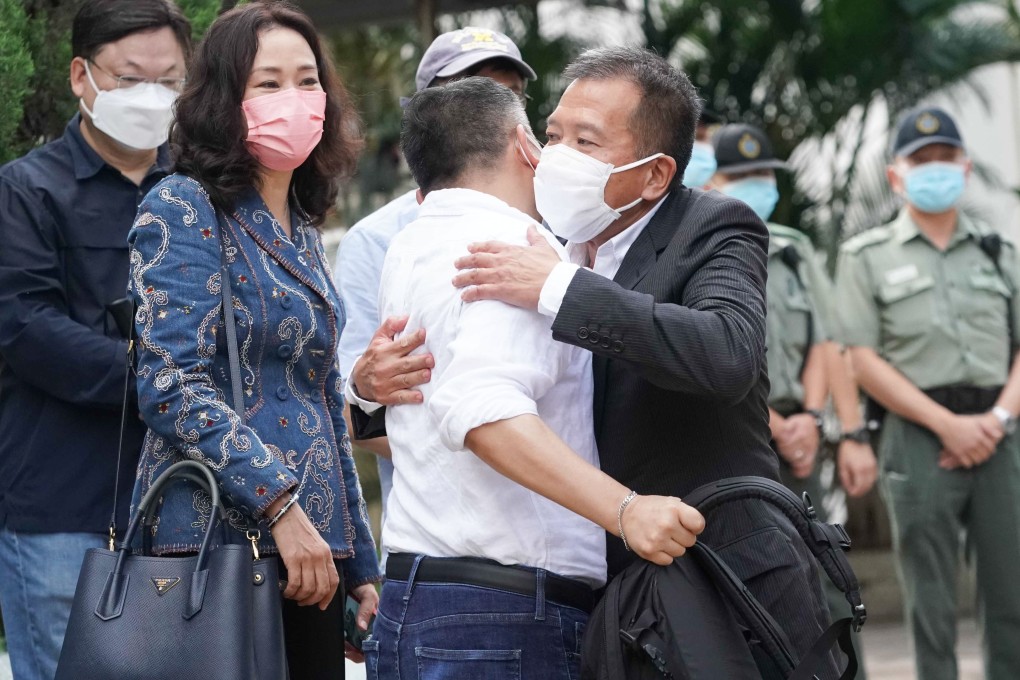Early prison release for former Hong Kong feng shui master Peter Chan, jailed over forged will involving HK$83 billion fortune of late tycoon Nina Wang
- Chan was sentenced to 12 years after being convicted in 2013, but has been released early for good behaviour
- The former feng shui master and businessman has consistently maintained his innocence

At 8.30am on Saturday, a handful of people were seen waiting outside Stanley Prison for Chan. Among them was his priest. The group also carried a large lotus painting with messages of support.
Donning a suit, Chan walked out of prison at 9.35am accompanied by police officers. He handed his personal belongings and a Bible to his companions and hugged some of them.
“Thank you everyone,” Chan, his hair now greyer, told reporters, adding that he felt “OK”.
He hurriedly got into a black car with three other men and briefly displayed some of the gifts he had received, such as a red Chinese calligraphy piece, before closing the windows.

01:54
Early release for former Hong Kong feng shui master jailed over forged will
Chan made his first stop at a cemetery on Victoria Road to visit his mother’s grave.